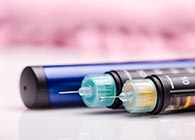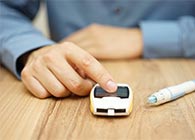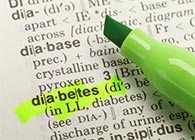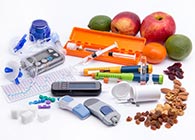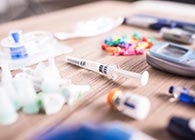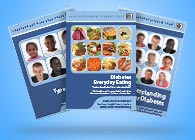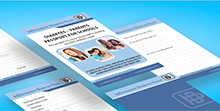Medication errors in hospitals
Medication errors in hospitals
A National Diabetes Inpatient Audit [NaDIA] report publishes May 17th 2012 has shown that nearly one in three hospital patients with diabetes are affected by medication errors. This is a small improvement on last year. The audit examined bedside data for 12,800 patients and 6600 patient questionnaires, covering subjects including medication errors and patient harm over a seven day period in October 2011. It involved 11,900 patients in 212 English hospitals and 900 patients in 18 Welsh hospitals.
During the seven day audit period hospitals in England and Wales made at least one medication error in the treatment of 3700 inpatients. 32.4 per cent of patients (3,430) experienced at least one medication error in the previous seven days of their hospital stay.
Patients with errors suffered with:
- More than double the number of hypos [low blood sugars] compared to people with errors.
- 65 patients developed ketoacidosis [DKA] during their hospital stay. This worse than last year when the number was 44. DKA occurs when blood glucose levels are consistently high which suggests that insulin treatment was not given for a significant period of time.
Medication errors were recorded under two types – ‘prescriptions error’ and ‘medication management error’.
Prescription errors
- 20.7% of patients with diabetes experienced a prescription error – an improvement on last year when it was 25.5%.
- The most common error was failing to sign off information that insulin had been given on the patient’s bedside. This happened to 11.1% of patients – last year it was 12.7%.
Medication management errors
- 18.4% of patients with diabetes experienced medication management errors – an improvement on last year when it was 19.7%.
- The most common error was failing to adjust medication appropriately when the patient has a high blood glucose level. This happened to 23.9% of patients – last year it was 27.9%.
- 17.4% of patients with medication errors had a severe hypoglycaemic attack while in hospital compared to 7.5% without medication errors.
The report can be accessed at www.ic.nhs.uk/nda
In commenting on the report the lead clinician Dr Gerry Rayman made the following points:
- Training [of health professionals] needs to be mandatory to reduce hypoglycaemia and prevent DKA occurring in hospital for which there is no excuse: its occurrence is negligent and should never happen.
- Controlling diabetes can be difficult, more so when people are ill and unable to eat and drink. This is why knowledge, experience and skill of diabetes specialist staff are so important. There is no doubt that big improvements in care and patient safety can happen by ensuring that hospitals are adequately staffed wih inpatient diabetes specialist teams.
NHS Diabetes: “Do the course. Save a life.”
Every hospital in England has been sent an information pack designed to encourage NHS hospital staff to complete free online training to avoid insulin errors and remind them that insulin errors are serious. There message is “Do the course. Save a Life.”
Anna Morton, the Director of NHS Diabetes has highlighted that diabetes teams in hospital need to promote the safe use of insulin course to their non-specialist colleagues. She also says that all NHS staff who prescribe, prepare or administer insulin should be appropriately trained to bring down the number of avoidable errors.
More information:
http://www.diabetes.nhs.uk/safe_use_of_insulin/safe_use_of_insulin_elearning_module/


